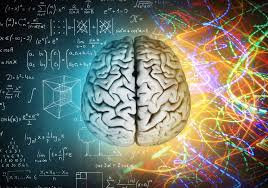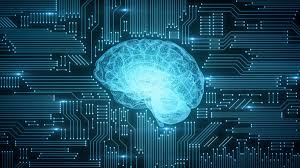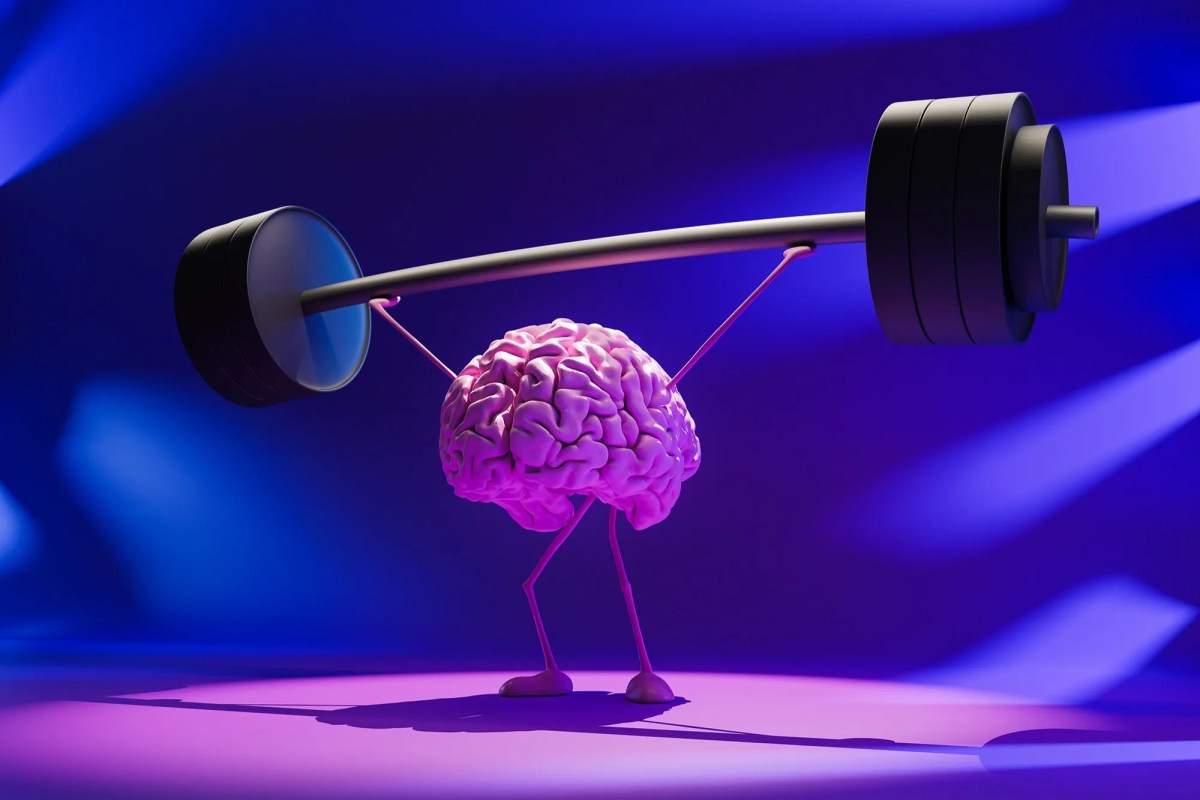The human brain is one of the most powerful systems in existence. It controls how we think, feel, learn, and create. While it may sound futuristic, “hacking the brain” doesn’t mean breaking into it like a computer. Instead, it refers to using proven methods, tools, and techniques to optimize brain performance, boost mental clarity, and rewire habits for success.
What Does It Mean to “Hack the Brain”?
When people talk about “hacking the brain,” they don’t mean literally breaking into it like a computer. Instead, it refers to optimizing brain function by understanding how it works and applying strategies to improve performance.
The human brain is constantly adapting — a process called neuroplasticity. This means your thoughts, habits, and environment can physically reshape the brain over time. Brain hacking uses this concept to:
- Boost focus and productivity by training attention and reducing distractions.
- Enhance memory and learning through exercises, repetition, and healthy habits.
- Improve mood and emotional resilience with mindfulness, gratitude, and stress management.
- Reprogram habits and behavior by creating positive routines that stick.
Think of brain hacking as a mix of science, psychology, and lifestyle design. Just as athletes train their bodies, you can train your brain to function at peak performance.
Brain Hacking Techniques
1. Upgrade Your Nutrition 🥦
Your brain is like a high-performance engine — it can only run as well as the fuel you give it. Poor diet slows down mental processing, causes fatigue, and weakens focus, while the right nutrition sharpens memory, boosts energy, and protects against cognitive decline.
Key Brain Foods:
- Omega-3 Fatty Acids (Fish, Walnuts, Flaxseeds): Strengthen brain cell membranes and improve communication between neurons.
- Antioxidant-Rich Foods (Blueberries, Dark Chocolate, Green Tea): Protect the brain from oxidative stress and aging.
- Leafy Greens (Spinach, Kale, Broccoli): Rich in vitamins like folate and vitamin K that support cognitive health.
- Whole Grains (Oats, Brown Rice, Quinoa): Provide steady energy for better focus and concentration.
- Hydration (Water & Herbal Teas): Even mild dehydration can impair short-term memory and alertness.
What to Limit:
- Excess Sugar & Processed Foods: Cause energy crashes and inflammation.
- Too Much Caffeine: Can increase anxiety and disrupt sleep, which is essential for memory consolidation.
- Trans Fats: Linked to slower brain function and memory decline.
Pro Tip:
Think of every meal as a chance to feed your brain. A diet balanced with healthy fats, antioxidants, proteins, and hydration doesn’t just improve long-term brain health — it also gives you more clarity, creativity, and mental stamina right now.
2. Use the Power of Neuroplasticity 🧠
One of the brain’s most remarkable abilities is neuroplasticity — its capacity to reorganize and form new neural connections throughout life. This means your brain is not fixed; you can literally rewire it by changing your thoughts, habits, and experiences.
How Neuroplasticity Works
Every time you learn a new skill, practice a habit, or repeat a thought, your brain strengthens certain neural pathways. Over time, these pathways become “default settings.” By consciously practicing positive habits, you can replace old, unhelpful patterns with new, empowering ones.
Ways to Hack Neuroplasticity:
- Learn New Skills: Pick up a language, play an instrument, or try puzzles — novelty stimulates new connections.
- Repeat Positive Habits: Consistency reinforces neural circuits. The more you practice, the stronger the habit becomes.
- Challenge Your Comfort Zone: Doing something unfamiliar (like taking a new route or switching hands for daily tasks) wakes up dormant brain areas.
- Mindful Thinking: Catch negative self-talk and replace it with positive affirmations to reprogram your mental patterns.
- Practice Visualization: Imagining success activates similar brain regions as actually performing the task, strengthening belief and readiness.

3. Practice Deep Focus & Flow 🎯
In today’s world of constant notifications and distractions, the ability to focus deeply has become a superpower. When you train your brain to concentrate, you unlock higher productivity, creativity, and problem-solving abilities. This state of intense concentration is often called “flow.”
What is Flow?
Flow is a mental state where you are so absorbed in a task that time seems to disappear. It’s when your skills and challenges perfectly match, allowing your brain to perform at its peak. Athletes call it “being in the zone,” while artists describe it as effortless creativity.
How to Hack Your Brain for Deep Focus & Flow:
- Work in Focus Blocks: Use the Pomodoro Technique (25–50 minutes of work followed by a short break) or longer 90-minute cycles.
- Eliminate Distractions: Silence notifications, close extra tabs, and create a clutter-free workspace.
- Set Clear Goals: Before starting, define what you want to achieve in that session. Clarity fuels focus.
- Match Challenge with Skill: Tasks that are too easy cause boredom, while overly difficult ones cause anxiety. Find the “sweet spot” that keeps you engaged.
- Use Rituals to Start: Simple cues like a specific playlist, deep breathing, or a focused workspace signal your brain it’s time to concentrate.
- Train Attention Daily: Meditation, mindfulness, or even focusing on your breath strengthens your mental “attention muscle.”
4. Sleep Like It Matters 😴
Sleep is not wasted time — it’s essential for brain performance. While you rest, your brain is hard at work: consolidating memories, repairing cells, and clearing out toxins that build up during the day. Skimping on sleep weakens focus, slows reaction times, and makes it harder to manage emotions. In short: if you want a smarter brain, start by getting better sleep.
Why Sleep Is Crucial for the Brain
- Memory Consolidation: During deep sleep, the brain transfers information from short-term memory into long-term storage.
- Brain Detox: The glymphatic system clears away toxins, reducing the risk of neurodegenerative diseases.
- Problem-Solving & Creativity: REM sleep sparks insights and strengthens connections between ideas.
- Mood Regulation: Lack of sleep increases stress hormones like cortisol, making you more irritable and less focused.
Brain Hacking Tips for Better Sleep
- Stick to a Schedule: Go to bed and wake up at the same time daily, even on weekends.
- Create a Sleep-Friendly Environment: Keep your room cool, dark, and quiet.
- Limit Screen Time: Blue light from phones and laptops suppresses melatonin production.
- Avoid Stimulants Late in the Day: Cut back on caffeine and heavy meals at least 6 hours before bedtime.
- Wind Down Ritual: Try meditation, reading, or gentle stretching before bed to signal your brain it’s time to rest.
5. Exercise for a Smarter Brain 🏃
Your body isn’t the only thing that benefits from exercise — your brain gets stronger too. Physical activity boosts blood flow, delivers oxygen and nutrients, and stimulates the release of chemicals that enhance learning, memory, and mood. In fact, scientists often call exercise “miracle grow for the brain.”
How Exercise Hacks the Brain:
- Improves Memory: Aerobic exercise increases the size of the hippocampus, the brain area responsible for learning and memory.
- Boosts Focus & Creativity: Movement raises dopamine and endorphin levels, improving concentration and sparking new ideas.
- Reduces Stress & Anxiety: Exercise lowers cortisol, the stress hormone, making the brain calmer and more resilient.
- Slows Aging: Regular activity protects brain cells and reduces the risk of cognitive decline and diseases like Alzheimer’s.
Best Exercises for Brain Power:
- Cardio (Running, Cycling, Swimming): Great for memory, learning, and overall brain function.
- Strength Training: Builds resilience and sharpens focus by challenging both body and mind.
- Yoga & Tai Chi: Combine movement with mindfulness, improving emotional balance and mental clarity.
- Walking in Nature: Even a 20-minute walk outdoors boosts mood, creativity, and problem-solving skills.
6. Train with Mindfulness & Meditation 🧘
Your brain is constantly bombarded with information — thoughts, emotions, notifications, and external noise. This overload often leads to stress, distraction, and mental fatigue. Mindfulness and meditation are brain hacks that cut through the noise, sharpen focus, and rewire the brain for calm and clarity.
How Mindfulness & Meditation Hack the Brain
- Strengthen Attention: Regular meditation thickens the prefrontal cortex, the brain’s center for focus and decision-making.
- Reduce Stress: Mindfulness lowers cortisol levels, calming the nervous system.
- Improve Emotional Regulation: Meditation activates the anterior cingulate cortex and insula, areas linked to empathy and self-control.
- Boost Memory & Learning: Studies show meditation improves working memory and overall cognitive flexibility.
- Enhance Creativity: A calmer, focused mind is better at connecting ideas in new ways.
Practical Ways to Practice
- Mindful Breathing: Spend 5 minutes focusing only on your breath. When your mind wanders, gently bring it back.
- Body Scan: Notice sensations from head to toe, building awareness of how your body feels.
- Guided Meditation Apps: Tools like Headspace, Calm, or Insight Timer help beginners stay consistent.
- Mindful Moments: Practice being fully present while eating, walking, or listening — no multitasking.

7. Leverage Technology ⚡
Technology, when used wisely, can become a powerful tool to hack your brain for better focus, memory, and productivity. From apps that sharpen cognitive skills to devices that track brain activity, modern tools help you understand your mind and optimize its performance.
How Technology Can Hack the Brain
- Boost Cognitive Skills: Brain-training apps provide exercises for memory, problem-solving, and focus.
- Track Mental Health: Wearables and apps monitor sleep, stress, and heart rate, offering insights into mental well-being.
- Enhance Focus: Tools block distractions and encourage deep work sessions.
- Support Relaxation & Mindfulness: Guided meditation apps help calm the mind and reduce stress.
Useful Tech Tools for Brain Optimization
- Brain-Training Apps: Lumosity, Elevate, Peak — improve memory, attention, and mental agility.
- Focus & Productivity Tools: Forest, Freedom, Notion — block distractions and help organize thoughts.
- Meditation & Mindfulness Apps: Headspace, Calm, Insight Timer — guide daily mindfulness practice.
- Sleep Trackers: Oura Ring, Fitbit, Sleep Cycle — monitor rest and improve sleep quality.
- Biofeedback Devices: Wearables like Muse headbands measure brain activity and provide real-time feedback during meditation.
8. Control Your Environment 🌍
Your brain is constantly influenced by the world around you. The sights, sounds, people, and even the level of clutter in your space can either sharpen your focus or drain your energy. By designing your environment with intention, you make it easier for your brain to stay productive, creative, and stress-free.
How Environment Shapes the Brain
- Clutter = Cognitive Load: A messy environment competes for your attention, reducing focus and increasing stress.
- Lighting & Air Quality: Natural light boosts mood and alertness, while fresh air enhances oxygen flow to the brain.
- Noise Levels: Constant background noise can lower concentration, but ambient or instrumental music may improve focus for some tasks.
- Social Energy: The people you spend time with influence your mindset, habits, and motivation.
Ways to Hack Your Environment
- Declutter Regularly: Keep only what you need on your desk; a clean space encourages a clear mind.
- Optimize Lighting: Use daylight or warm lighting for alertness and avoid harsh artificial lights late at night.
- Use Sound Strategically: Try white noise, binaural beats, or instrumental music to block distractions.
- Surround Yourself with Growth: Spend time with positive, motivated people who uplift and inspire you.
- Add Brain-Friendly Cues: Vision boards, motivational quotes, or calming plants remind your brain to stay focused and positive.

9. Reprogram with Affirmations & Visualization 🌟
Your brain doesn’t just respond to the outside world — it also responds to the thoughts and images you feed it. Affirmations and visualization are powerful tools to “reprogram” your subconscious mind, replacing limiting beliefs with empowering ones and preparing your brain for success.
Why It Works
- Neuroplasticity: Repeated thoughts strengthen neural pathways, making them your brain’s default settings.
- Reticular Activating System (RAS): This part of your brain filters information. When you visualize a goal, your RAS starts spotting opportunities connected to it.
- Emotional Priming: Positive affirmations shift your mood and confidence, which influence decisions and actions.
How to Practice Affirmations
- Write 3–5 short, positive statements in the present tense (e.g., “I am focused and capable,” “I attract opportunities easily”).
- Repeat them daily, ideally in front of a mirror.
- Speak with conviction — your brain believes what you consistently tell it.
How to Practice Visualization
- Close your eyes and picture your goal as if it’s already achieved.
- Engage all senses: What do you see, hear, feel, even smell in that moment of success?
- Spend 5–10 minutes daily imagining yourself living that reality.
The Science Behind Brain Hacking
Brain hacking isn’t magic — it’s rooted in neuroscience, psychology, and biology. By understanding how the brain works, you can use proven strategies to boost performance, rewire habits, and unlock hidden potential.
1. Neuroplasticity 🧠
The brain can rewire itself by forming new neural pathways. Every thought, habit, or skill you repeat strengthens connections, while unused ones fade away. This explains how people can recover after brain injuries or learn new abilities at any age.
2. Dopamine & Reward Systems 💡
Dopamine, often called the “motivation molecule,” drives goal-seeking behavior. Celebrating small wins releases dopamine, which motivates you to keep progressing. This is why breaking goals into smaller steps is so effective.
3. Cortisol & Stress 😰
Chronic stress floods the brain with cortisol, damaging memory and reducing focus. Practices like meditation, exercise, and sleep lower cortisol, allowing the brain to function at its best.
4. Reticular Activating System (RAS) 🔍
This brain filter determines what you notice. If you focus on success, your RAS highlights opportunities; if you focus on problems, it amplifies obstacles. Affirmations and visualization train the RAS to align with your goals.
5. Habit Loops 🔄
Habits are formed in a loop of cue → routine → reward. By changing the routine while keeping the same cue and reward, you can reprogram bad habits into good ones.
6. The Role of Sleep & Memory 💤
During deep sleep, the brain consolidates memories and clears out toxins through the glymphatic system. This makes sleep a cornerstone of learning and long-term brain health.

Final Thoughts
The human brain is the most powerful tool you’ll ever own — yet most of us never learn how to use it to its fullest potential. Brain hacking isn’t about shortcuts or gimmicks; it’s about making small, intentional changes in how you eat, sleep, think, and live so your mind works for you, not against you.
From nutrition and exercise to mindfulness, affirmations, and controlling your environment, each technique trains your brain to focus better, learn faster, and stay resilient under stress. When combined, these habits create a powerful ripple effect: sharper memory, deeper creativity, stronger emotional balance, and greater success in everyday life.
The truth is, you don’t need to “add” superpowers to your brain — they’re already there. You just need to unlock them with the right habits. Start small, stay consistent, and remember: if you can master your brain, you can master your life.


 Watch
Watch
 CASUAL WEAR
CASUAL WEAR
